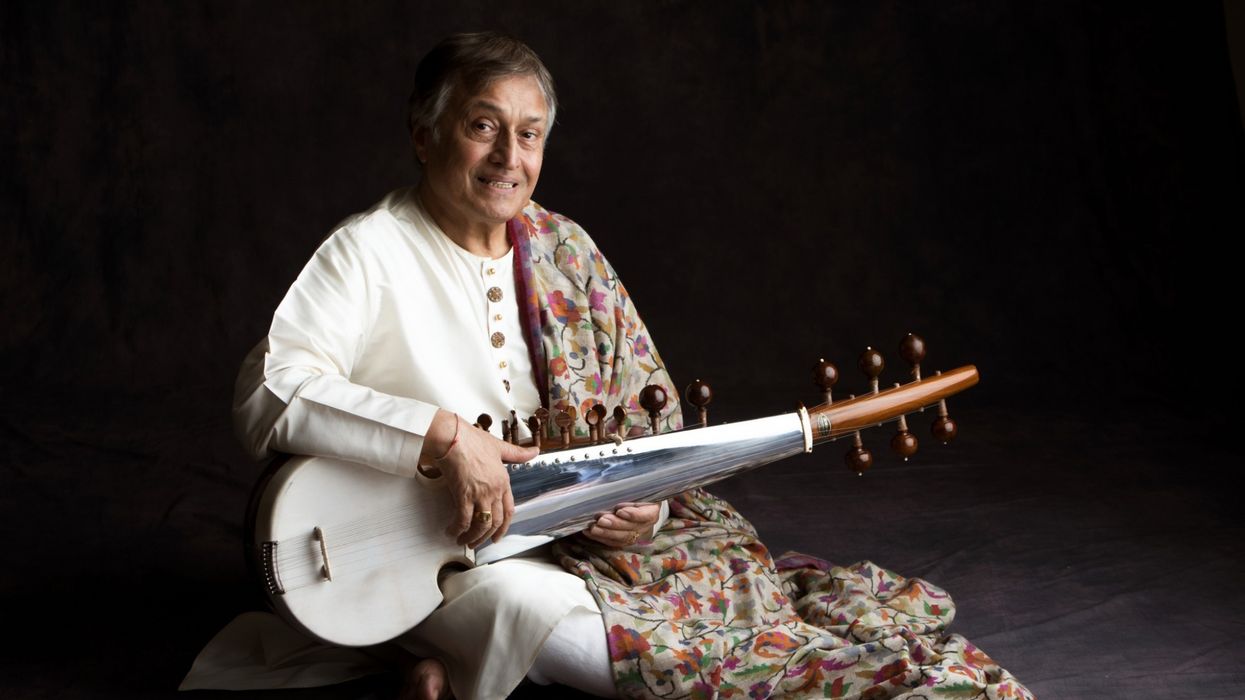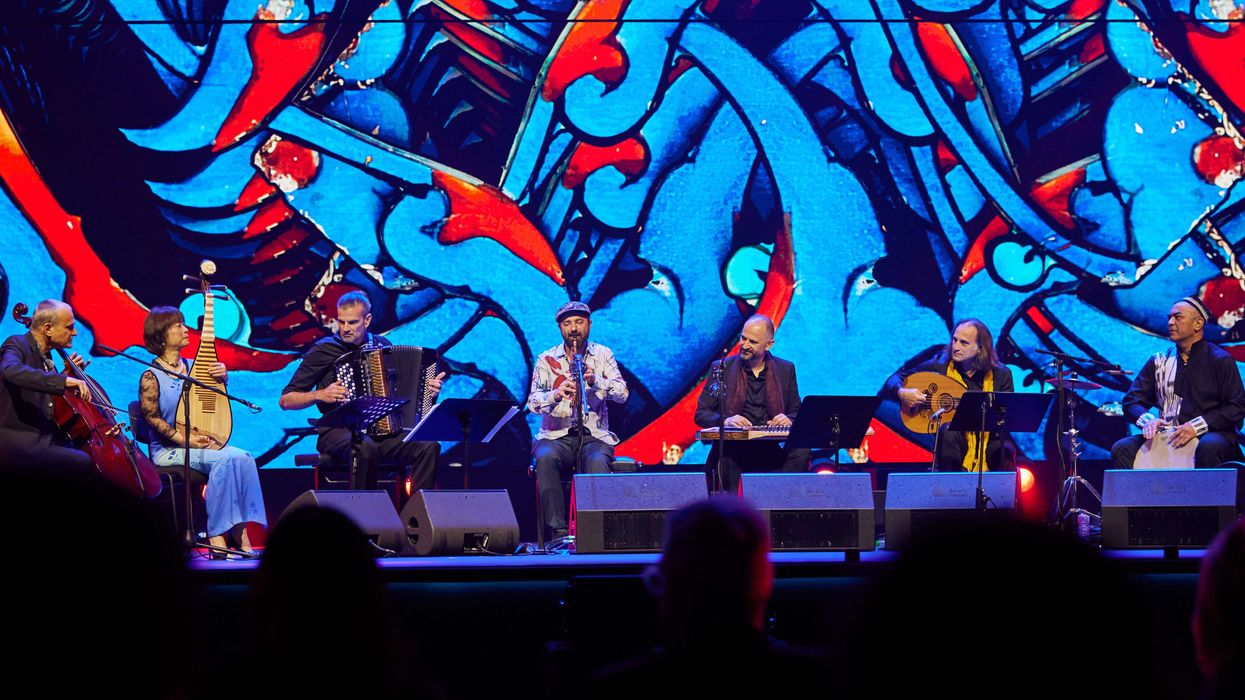LEGENDARY musician Ustad Amjad Ali Khan has long been celebrated as the greatest and most influential sarod player in the world.
At 79, the Indian classical icon continues to captivate global audiences with his mastery. UK fans will have the privilege of witnessing his artistry on January 25 at the Royal Festival Hall in London, where he will perform alongside the London Philharmonic Orchestra.
Ahead of this grand concert, Eastern Eye shares fascinating insights into the life and career of the maestro.
Born on October 9, 1945, as Masoom Ali Khan to legendary sarod maestro Hafiz Ali Khan and Rahat Jahan, his name was later changed to Amjad by a holy man.
The youngest of seven children, he was born into a sixth generation of musicians, with a lineage tracing back to the inventors of the sarod.
Khan began studying music under his father, a revered court musician in Gwalior, and gave his first public performance at the age of six.
The naturally gifted musician performed in the USA as a teenager in 1963.
Ustad Amjad Ali Khan modernised sarod playing by introducing shorter compositions and new styles of playing, enabling the instrument to reach a wider and more diverse global audience.
In 1971, he became the first sarod player to perform at Carnegie Hall in New York, introducing Western audiences to the unique expressiveness of the instrument.
Ustad Amjad Ali Khan (1990), an Indian documentary film on the maestro directed by Gulzar, won the Filmfare Award for Best Documentary.
His sons, Amaan Ali Bangash and Ayaan Ali Bangash, are both world-class sarod players who regularly perform across the globe. They often deliver live shows together as a trio. Speaking of his sons, he said, “I am grateful to God that Amaan and Ayaan have been accepted by the world, and they are very committed, compassionate, kind human beings who work really hard.”
His numerous awards include the Indian government’s civilian honours – the Padma Shri (1975), Padma Bhushan (1991), and Padma Vibhushan (2001). He has also received honorary doctorates from several international universities.
After a failed first marriage, he fell in love with celebrated Bharatanatyam dancer Subhalakshmi Barooah. They maintained a long-distance relationship before marrying happily in 1976. In 1984, the US state of Massachusetts proclaimed April 20 as Amjad Ali Khan Day.
Ustad Amjad Ali Khan authored Master on Masters, a book that offers a glimpse into the lives of other great Indian musicians and the impact of Indian classical music.
He received a Grammy nomination for his 2009 album Ancient Sounds, a remarkable collaboration with Iraqi oud virtuoso Rahim AlHaj.
Ustad Amjad Ali Khan believes that music is a way to reach the divine and has likened the sarod to a conversation with God.
His ancestors are believed to have developed the sarod by adapting the Afghan rabab, a lute-like instrument, into its modern form.
He has performed in more than 40 countries and collaborated with renowned ensembles such as the Scottish Chamber Orchestra and the Britten Sinfonia.
In 2014, Ustad Amjad Ali Khan, along with his sons Ayaan and Amaan, performed the composition Raga for Peace at the Nobel Peace Prize concert.
An Evening With Amjad Ali Khan at Royal Festival Hall, Southbank Centre, Belvedere Road, London SE1 8XX on Saturday, January 25. www.southbankcent.




